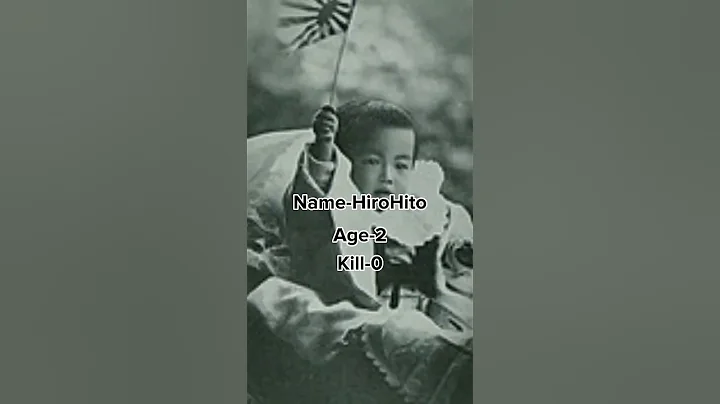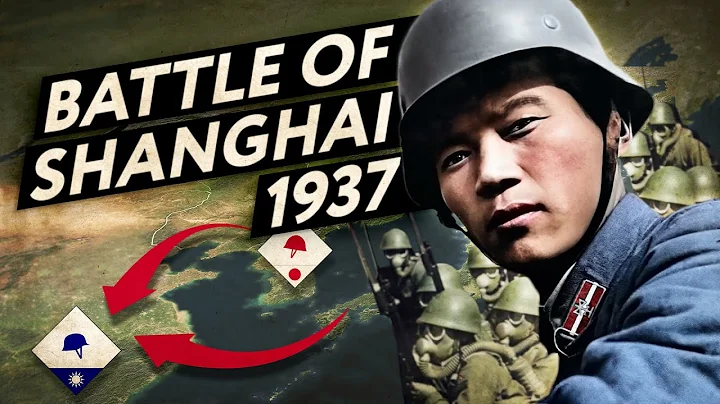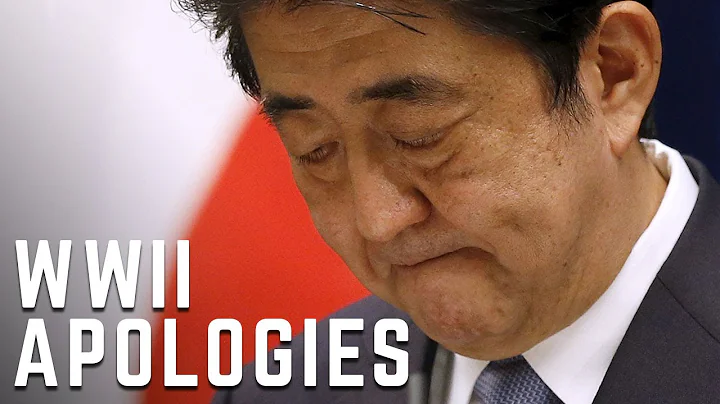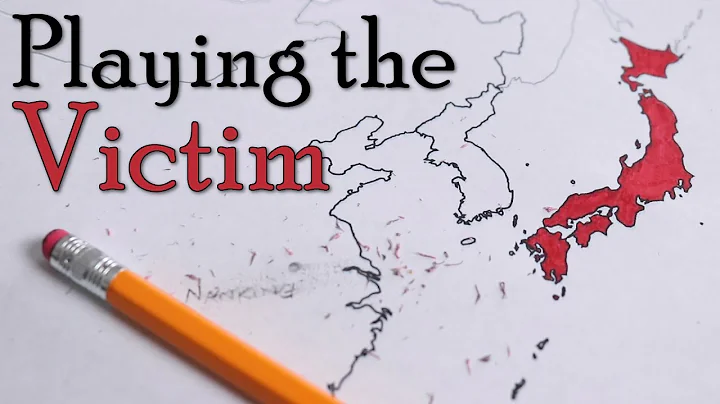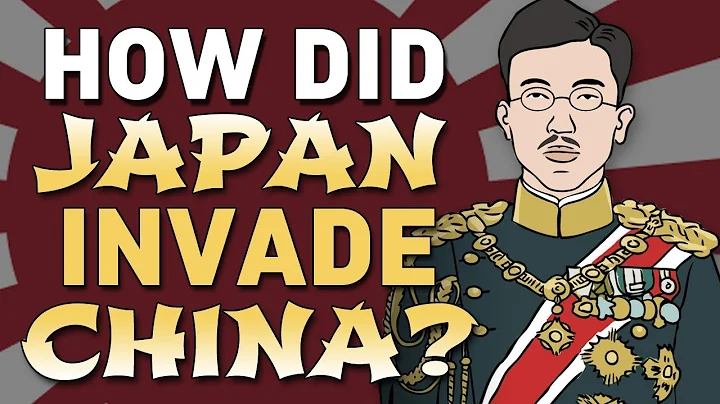Why did Japan invade China? The Sino-Japanese War was initiated by Japan. China did not provoke Japan. China was the victim. But why did China not provoke Japan, but Japan decided to invade China? The reason is definitely not as simple and emotional as "Japanese people are bad", but is specific and multi-faceted. The author will try to analyze and answer from several aspects.
First, the reason for the general trend of the world. Japan's modern aggression against China began with its invasion of Ryukyu and Taiwan in the 1870s. The general trend of the world at that time was that capitalism was developing rapidly, and the major capitalist countries in the West had begun to transition to the imperialist stage. Along with this process, the major capitalist and imperialist countries were crazy about foreign aggression and expansion. It set off a frenzy to carve up the world, and the vast number of countries in Asia, Africa and Latin America were reduced to colonies and semi-colonies one after another. The general trend of the world at this time was dominated by the major capitalist countries - imperialist countries. These countries also pursued "gangster logic", which made the international order at that time show a kind of " law of the jungle ", where the weak will eat the strong and any country will It is impossible to be completely isolated from the general trend of the world. Japan's invasion of China was also a tributary of the general trend of the world at that time. Japan was also invaded by Western powers. In this situation, it chose to invade others.
Second, the reasons for Japanese national character. A person's behavioral characteristics are an expression of his character, and a country's behavioral characteristics are an expression of its national character. A person's character comes more from nurture, and a country's national character comes more from its environment. Ancient China was a highly developed agricultural country. Farming was the most important source of wealth. Moreover, China had a typical monsoon climate with frequent droughts and floods. Therefore, the Chinese people had a strong sense of accumulation. On the one hand, they were very hard-working, working hard from early to late and working hard. of hard work, but will not enjoy the hard-earned output as much as possible, but try to save as much as possible for rainy days or expansion of reproduction . China can create a glorious ancient civilization, which is related to the diligence and thrift of the Chinese people. Very big. Japan is a long, narrow and mountainous island country. It only has narrow plains in the coastal areas. The land is narrow and densely populated, and the marine fishing industry has a prominent position. However, "there are no winds in the sea and three-foot waves", strong winds at sea, especially storm surges caused by typhoons. is also commonplace. In addition, there were not so good shipbuilding and navigation technologies in ancient times, and there was no accurate weather forecast, which made ocean navigation very dangerous. Every time you go to sea, you may never come back; at the same time, Japan Located in the Pacific Rim Seismic Zone , sudden disasters such as volcanoes, earthquakes, and tsunamis occur frequently, which makes the Japanese people extremely aware of danger. Also affected by Western aggression, under the rule of the Qing government, only a few advanced Chinese people in coastal areas, along rivers and other places woke up, and most of them were still in a state of ignorance and numbness. Due to the emergence of farces such as " horse-drawn train " and "human-pulled train" that make today's Chinese people dumbfounded, Japan quickly felt the pressure. Only then can we have the motivation." Japan burst out with strong passion and motivation, carried out the Meiji Restoration , and mobilized the whole country to start reforms to strengthen itself. It even seemed eager and extreme, and finally rose from a backward small feudal country to an emerging nation. As a powerful capitalist country, a strong sense of urgency plays a very important role in it. But at the same time, as an island country, Japan is far away from the East Asian continent, especially China, and has historically been inconvenient. It has generally developed independently. There is very little intersection between Japanese history and Chinese history. Even if there is, the degree of influence on China is limited. The history of Britain and the history of continental Europe are very different from each other. In addition, China has always been more developed than Japan in history. Japan has long been envious of China and calls China the "hometown of the heart". This also makes the Japanese national character There is an inferiority, ego, selfishness and extreme side in him.We will meet some people in our lives who are introverted, unsociable, and appear to be very honest, living in their own little world. But it is such people who live in isolation in their own little world, resulting in low self-esteem, Selfish, selfish, and become a self-centered person like "Julian", and easy to go to extremes and magnify the individual into a nation. The same is true for the Japanese. When faced with being invaded, the Chinese people are still broad-minded, so What Japan seeks is "salvation and survival", and what Japan seeks is not only self-preservation but also external expansion. Moreover, it also takes expansion as a matter of course. When others invade it, it feels ashamed of itself, but when it invades others, it feels ashamed. It is an honor, so much so that even though it is clear that one is invading other countries, one actually describes oneself as being forced to defend oneself. It is clear that one is burning, killing, looting, and committing all kinds of evil on other countries' land, yet one dresses oneself as a victim, as in "Tianlong" Like Kang Min in "Eight Parts". . The combination of various factors led to the expansion of Japanese militarism.
Third, the reasons are Japan’s national conditions and surrounding environment. Faced with the general trend of the world and domestic crises, the Japanese started the Meiji Restoration out of a strong sense of urgency in order to enrich the country and strengthen the military. However, Japan was originally a small, poor and backward feudal country with a serious lack of capital. Since capitalism is called "capitalism" , capital is very important. Even Western countries have to rely on bloody means such as enclosure movements, plundering colonies, and slave trade to complete the primitive accumulation of capital and obtain initial start-up funds, let alone Japan; secondly, Japan has It is a country with small resources, and there is a serious shortage of various industrial resources such as coal, iron, oil and even cotton. Therefore, Japan has turned its attention abroad, hoping to seize capital and resources through aggression and expansion. In addition, the Japanese have low self-esteem, ego, and selfishness. And with an extreme temperament, the aggression will naturally be greatly enhanced. However, Japan is a rising country. It is impossible to compete with the old Western colonial countries for Africa, Latin America, South Asia and other places. Therefore, it aims at North Korea, China, etc., and regards these places as its own "bags". things" and formulated a selfish strategy of "losing the West and gaining the East". The West invaded them and took away their things. They did not dare to seek justice from the West, but instead went to invade countries more powerful than themselves. Weak countries steal things from weaker countries to make up for their losses. Hi! Moreover, they have repeatedly succeeded in their external expansion. They launched the Sino-Japanese War of 1898. obtained an indemnity of up to 230 million taels of silver from the Qing government and the privilege of ceding Taiwan and Penghu and opening mines and factories in China. They joined the Eight-Nation Allied Forces and Once again obtained indemnities from the Qing government, launched the Russo-Japanese War, consolidated and expanded its privileges in Northeast China and North Korea, participated in World War I and seized the German sphere of influence in Shandong, China, and many islands in the Pacific... This The series of victories brought benefits such as funds, resources, investment locations, and business privileges to Japan, thus promoting the country's development and further stimulating Japan's desire for aggression and expansion.
Fourth, the development of capitalism brings about new social problems. After the Meiji Restoration , Japan achieved rapid development through internal reforms and external aggression and expansion, and became an emerging power. However, many problems also emerged during the development. One is corruption.Japan embarked on the path of capitalism through top-down reform. At that time, Japan was still an autocratic country. In addition, Japan's capitalism was not fully developed, so it implemented "state-owned transformation" in the process of " colonial industry " "The policy is to first concentrate the country's financial resources to establish some modern enterprises to form a foundation and demonstration effect, and then transfer these enterprises to private individuals at preferential prices in order to improve economic efficiency, mainly Zaibatsu who have close relations with the new Meiji government. Although the family has overcome the weakness of Japan's lack of capital, improved the operating efficiency of enterprises, and promoted the development of the entire Japanese economy, it is an obvious "collusion between officials and businessmen" and serious corruption has occurred, causing public dissatisfaction; at the same time, Before the Meiji Restoration, Japan launched the Overthrow Movement . The Overthrow Movement was carried out in the name of the Emperor, with Choshu, Satsuma and other feudal lords as the leading force. Therefore, in an era when strength spoke, although the Emperor was promoted, But he is still only the supreme spiritual leader. The real power is in the hands of the Choshu and Satsuma warlords. The Choshu warlords control the army, the Satsuma warlords control the navy, and the army controls the government. Military personnel are also very corrupt. Non-Changshu and Satsuma warlords cannot get into the top ranks of the military. , also caused dissatisfaction among ordinary officers and soldiers; furthermore, after the Meiji Restoration, Japan still has a privileged aristocratic class that enjoys legal political, legal, economic and other privileges. Moreover, warlords, chaebols, nobles, etc. also colluded with each other, resulting in the lower class people of general dissatisfaction. The second is the problem of wealth disparity and social injustice. Because phenomena such as official-business collusion, personnel corruption, and group corruption have appeared in Japan, although Japan has embarked on the road of capitalism and developed rapidly, more of the fruits of development have been occupied by privileged classes such as warlords, chaebols, elders, and nobles. , the vast majority of ordinary people are increasingly relatively poor, and their living conditions are very poor, and some are even worse than before the reform; the privileged class not only possesses a large amount of social wealth by virtue of their privileged status, but also often uses their power to bully others, making society more unfair and social problems more serious. Faced with these social problems, the solution of the Japanese rulers is to expand externally. Firstly, through external expansion, they can divert the attention of the people of the country and promote their great achievements; secondly, they can plunder wealth through war and rob those in a privileged position. Regional immigration, rewards for meritorious servicemen and their families in wars, etc. are used to redistribute wealth, giving the people of the country opportunities and channels to improve their living conditions (use the wealth of other countries to appease the people of the country. Hi!). Especially later, under the impact of the economic crisis of the capitalist world, the lives of the broad masses of people were plunged into dire straits. The dissatisfaction and resistance of the lower class people and officers and soldiers increased day by day, and socialist ideological trends were widely spread in Japan. However, because Japan is an imperialist country with a military feudal nature, it vigorously promotes the worship of the emperor among its citizens and cannot produce popular leaders. The only people who can change Japanese society are soldiers who were very respected in Japanese society at that time. In addition, Japan is a country in which warlords are in fact in power. Only the "advanced elements" among the military can seize the leadership of the military and then the country, and then launch a new round of reform to solve Japan's social problems. Ordinary officers and soldiers in the Japanese army are also dissatisfied with the military's personnel corruption. At the same time, ordinary officers and soldiers are also from lower classes and are well aware of the sufferings of ordinary people. As a result, some soldiers in the army began to have political ambitions. Nagata Tetsuzan, Obata Toshishiro, and Okamura Neji took the lead in forming the "Sanyuwu" alliance, and then formed the Showa Warlord Group (as it was later called), determined to seize the The army gained real power, eliminated corruption in the army, and then launched the "Showa Restoration" (as it was later called), changing the entire Japanese country. Their ideas were not only echoed by the "ambitious young people" in the military, but also supported by ordinary people. They also received support from Emperor Showa (because he also wanted to get rid of the old warlords and others and completely grasp real power).However, as soldiers, if they want to realize their ambitions, they must do one thing, and that is - launch a foreign war, because only in this way can they prove their greatness and correctness through victory, and gain more support to seize power. , and only in this way can the entire country be tied to the chariot, so that they can "respect themselves"...

Sanyuwu
Therefore, under the combined effect of multiple reasons, Japan's war of aggression against China , especially in the March and Fourth Period of the 20th century The all-out war of aggression against China broke out in the 1900s.

September 18th Incident

July 7th Incident
